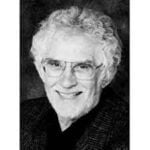Rescripting in Past-Life Therapy: Its Use with Clients as Thinking Beings – Maggie van Staveren (Is.17)
Maggie van Staveren, L.C.S.W., C.Ht.
It is important that we take a second look at our work as past-life therapists. We have learned a lot over the past few years. We are more aware of who we are, who our clients are, and more aware of the nature of our work as past-life therapists. Perhaps there is more than one technique to use with our clients. Now that we know more, let’s take a look at rescripting.
We and our clients are spiritual thinking beings in human form. The very word “man” means “thinker” in its Sanskrit origins. We think and by our thinking we create. Our greatest power is to choose our thinking. There is that part of … Read the rest




 The technique of rescripting is not one that I use, and I have never had a clear explanation of its benefits, although I have discussed it with colleagues who use the method. As I understand, rescripting grows out of quantum physics and current thinking that all time exists now; there is no past, present or future, there is only the eternal Now.
The technique of rescripting is not one that I use, and I have never had a clear explanation of its benefits, although I have discussed it with colleagues who use the method. As I understand, rescripting grows out of quantum physics and current thinking that all time exists now; there is no past, present or future, there is only the eternal Now.
